COLLEGE FEMINISMS: An Unfinished Story About Violence
By Emma Redden
30.25° N, 97.75° W
I am in Austin, Texas, two thousand miles from home asking strangers on the sidewalk to talk about the epidemic of abusive men. I’m standing next to a pizza stand with a mist machine with a camera and stack of white papers. I am asking people I don’t know, to be brave. This is a story about bravery.
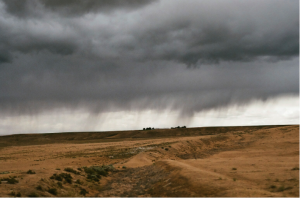 Jeff and I are driving around the United States, asking strangers to stand in solidarity with survivors of domestic abuse. We are not standing on sidewalks and in parks seeking survivors, though some people identify themselves as victims. Violence in homes is so common, so familiar, the numbers make it impossible to talk to large groups of people, about the importance of support, without some having stories of their own. We are photographing members of the public as well as employees and staff of domestic violence service centers and asking them to all answer one question, “why is it important to support victims of domestic violence?” In response, participants hand write statements of support, which we overlay on their photograph to make a series of portraits. We intend to publish a book, which includes the images as well as resources for survivors and their systems of support. All the proceeds from the book will go to the local domestic violence service center where I work.
Jeff and I are driving around the United States, asking strangers to stand in solidarity with survivors of domestic abuse. We are not standing on sidewalks and in parks seeking survivors, though some people identify themselves as victims. Violence in homes is so common, so familiar, the numbers make it impossible to talk to large groups of people, about the importance of support, without some having stories of their own. We are photographing members of the public as well as employees and staff of domestic violence service centers and asking them to all answer one question, “why is it important to support victims of domestic violence?” In response, participants hand write statements of support, which we overlay on their photograph to make a series of portraits. We intend to publish a book, which includes the images as well as resources for survivors and their systems of support. All the proceeds from the book will go to the local domestic violence service center where I work.
We have been on the road for thirteen days—two thousand seven hundred and seventy five miles. We have one month and fifteen states ahead.
My whiteness, his whiteness, his manhood move us more powerfully than this car.  We are too fair to threaten the imagination of strangers and the men who threaten mine often can recede into the spaces between Jeff’s fingers and toes. Maybe my white skin is my shield, and maybe I’m just not allowed the sword. This is an elegy to my unearned protection. This is a story about perception.
We are too fair to threaten the imagination of strangers and the men who threaten mine often can recede into the spaces between Jeff’s fingers and toes. Maybe my white skin is my shield, and maybe I’m just not allowed the sword. This is an elegy to my unearned protection. This is a story about perception.
36.17° N, 86.78° W
It was the fourth night.
I walked alone to the empty parking lot because some days I want too badly to believe that I can be my own protector. I only needed my toothbrush
I don’t know if women without men smell differently, or shine differently, but it didn’t take long for me to be in the company of four men. Immediately, one approached with white teeth and a pigment in his irises that crawled like bugs under my skin.
He approached me. And I told him to leave. And he approached me and I told him to leave. He asked me why I didn’t love him, why I didn’t want him. He asked about my mouth and why I didn’t want him.
The five of us were alone, my phone was dead in my pocket and I couldn’t find the keys to lock the car. Four men watched me pray to the spirits of my grandmothers that I could find the keys. I assumed if I left, they’d take everything we had, and leave us stranded in a city we hadn’t yet met. So I stayed.
I wonder if Jeff’s exploration of the our hostel that night—which lead him curiously through two unmarked doors and onto the parking lot—that the trip lasted more than just those first four days. I wonder if men speak and understand a pitch all their own. I wonder if he translated my ‘no’, my ‘you need to leave’ at an octave that registered only between men. The boys threw my stolen sword back at my feet, and apologized only to my ‘protector’.
That night’s terror wasn’t the night terror the woman told me about in the flea market that morning. I was not twenty long years into a marriage saturated in violence unrecognized and encouraged by the world outside of the four walls of her home. But the disease that made him think he had the right to treat me—a woman with breath and empathy and fears and a fierce ability to love people—as if I were something to be taunted and admired and conquered, who was deaf to my dissent, is the same. It is this that sits so sideways and so deep and so heavy at the pit of me.
30.25° N, 97.75° W
I am in Austin, Texas, two thousand miles from home trying to make friends with the courage we need to really begin this project. Standing on the street, asking strangers to talk about a kind of hurt that we don’t even know how to discuss with those we hold most dear, scares me. I am afraid to feel ignored and dismissed as me, a woman on the sidewalk. But there is the deeper fear— the fear that lives in the fist space above my belly button and at the soft skin where my back meets my neck. I am terrified to test strangers. I am scared to see if other people care about something I worry, I am sure, is too important.
I am traveling with a man, being trapped by men who only apologize to other men. Some days this world doesn’t feel like mine. I am terrified to ask people to help me, to help other women, survive.
Measuring my life through the existence and absence of fear feels similar to measuring love through tears—but sometimes that’s just the kind of love it is. This story is about that kind of love.
35.67° N, 105.96° W
Behind us stands the American Indian War Memorial and across from us the gazebo houses a man who holds long limp balloons that silently beg the passing children to pull on their mother’s sleeve and ask permission for the magical man to turn plastic and deep breaths into puppies. Today the man in the beret and headphones from the year I learned how to walk pretends he doesn’t hear us. I wonder how hard his day has been. A woman with the lunch that smells like hot cheese and pears has to go to a meeting, twice. The couple in tie-dye who walks arm and hand say good luck but no, they aren’t interested in participating. I wonder about their relationship to each other’s fears.
But the woman in running gear stops and talks about how violence is a cycle—how we teach what we’ve been taught, we hurt like we’ve been hurt, we dominate like we’ve been dominated. The man with glasses and a furrowed brow writes about the importance of letting other people know we see them, we hear them, and we aren’t going to leave when it gets hard—when it starts to hurt us too. The man with the blue goatee says he doesn’t believe in violence at all—not terrorism in lands we’ve never tried to understand and not terrorism in the spaces between two people who share beds and forks and children.
The man with the mohawk and a quiet voice and beads around his neck stops and tells us about his art too. He says he wants to participate but would rather we didn’t take his picture. Big Brother wears many costumes and today might as well be Halloween. He is tall with gentle hands and his pants cuffed above his ankles. We give him a black marker and a white page. He kneels down to be close to the ground, and writes about victimization.
We hear the news. He chased his wife down the street and stabbed her, again and again. He killed her. This has never been a story about saving lives.
37.78° N, 122.42 °W
You can’t see the blue sky clearly through the wires, and flags, overhead. The trolley is yellow and the signs are red. The man with his dog listens to our tale, suggests a place to get clams, and says this isn’t something he can talk about. I wonder if he is scared. A mom pushes a stroller and we speak above her son’s head. I wonder if he will ask her questions about violent men and I wonder if she will talk to him about his father or uncles or himself, one day. The man smoking a joint walking down the street stops and tells us about AIDS, the importance of condoms and living each day like it’s the only one that will ever matter at all. I wonder if I will die before I am ready, too. The professor writes about ethics and the Australian tourist understands it can be any one of us who is abused–who abuses. We are the problem so we need to also be the solution. The woman with the backpack answers, “Because we are human”. I wonder if this could ever be a story about humanity.
I am eating granola and warm milk in a Styrofoam bowl at a picnic table. I have become lightly accustomed to stopping strangers on the sidewalk, but I am still bad at introducing myself to other breakfast eaters. But his eyes look kind this morning and sweet dried oats seem to give me courage. I ask the couple across from me where they are headed, and what they left behind. They return the question. I tell him we are driving home, taking the longest route we can find.
I ask him if I can take his photograph. He agrees. He stands in front of the fence and hugs himself.
I am in Arlington, New York, two thousand miles from Austin, Texas, curious about what the trip meant. The book is complete, filled with a hundred people and an index of hotline numbers, power and control wheels, safety plans, and addresses. Copies of the book sit on my desk. I think about anti-violence work—about work that is hard to measure and maybe even harder to ever fee like you are ever doing effectively. I don’t think this work is about right and wrong but I wonder if it’s about degrees of right. I don’t know yet to what degree I believe art can end cycles of injury.
I’m thinking about the women who live lives so stifled by structural violence that photographs and phone numbers don’t mean much at all. I wonder, for some, this book may not represent more than ink and money and an extravagant tour of lands that my people, people with white skin and disillusions about Manifest Destiny, are used to traversing. This book can only be for women who have a telephone, women who have access to services with waiting rooms, women who can read, women who speak English or Spanish. When I imagine who may flip through the pages I imagine the women I work with at the local domestic violence service center. This may be a story about them.
I consider whom we made this book for. One in four women in this country are survivors of abuse. I imagine the book sitting in the blue-lit waiting room of a hospital. It sits between magazines worn thin by nervous fingers. A young woman reads it. She hadn’t before known of the National Domestic Violence hotline. A mother reads it. She hadn’t understood her daughter’s abuse. She had never seen charts that drew her son-in-law’s face so vividly. A gay man reads it. He didn’t realize it was still abuse if he was a man. This isn’t a story about saving lives. But maybe this could be a story about planting seeds.
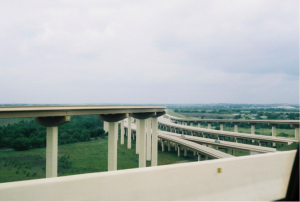 I wonder what it means to talk about abuse everyday—what it means for women to profile men who hurt, everyday. I’m not sure where to place the abusive men in my life I know and care about, and some I love. I wonder what it means for me that I think I know the red flags, in my dreams. Abusive men don’t yell, don’t manipulate, don’t use their hands as weapons on the first date. Not on the second date and most likely not the third. Abusive men become violent once love, once trust, once piety becomes the biggest ingredient in the relationship. The next time I fall in love, will those violent signs only seem like theory or chart words? Will I be so attuned, that I dismiss flags that had always been painted red? Will I fall in love with an abusive man? I don’t know. I think this is a story about me.
I wonder what it means to talk about abuse everyday—what it means for women to profile men who hurt, everyday. I’m not sure where to place the abusive men in my life I know and care about, and some I love. I wonder what it means for me that I think I know the red flags, in my dreams. Abusive men don’t yell, don’t manipulate, don’t use their hands as weapons on the first date. Not on the second date and most likely not the third. Abusive men become violent once love, once trust, once piety becomes the biggest ingredient in the relationship. The next time I fall in love, will those violent signs only seem like theory or chart words? Will I be so attuned, that I dismiss flags that had always been painted red? Will I fall in love with an abusive man? I don’t know. I think this is a story about me.
To see more about this project
_______________________________________________
![EmmaRedden-The_Is_A_[Unfinished]_Story_About_Violence-img_9628](https://thefeministwire.com/wp-content/uploads/2014/04/EmmaRedden-The_Is_A_Unfinished_Story_About_Violence-img_9628-200x300.jpg) Emma Redden is a writer and college student from Vermont. Her trip and the publication of Portraits of nonviolence was generously funded by The Davis Foundation 100 Projects for Peace Grant. All the photographs taken on the trip can be seen at peacebound.wordpress.com. Emma can be reached on Twitter at @Em_maRed_den
Emma Redden is a writer and college student from Vermont. Her trip and the publication of Portraits of nonviolence was generously funded by The Davis Foundation 100 Projects for Peace Grant. All the photographs taken on the trip can be seen at peacebound.wordpress.com. Emma can be reached on Twitter at @Em_maRed_den

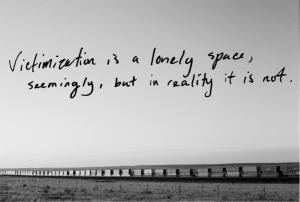
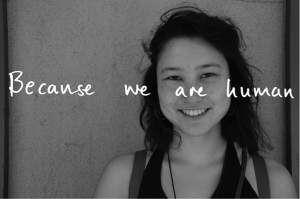
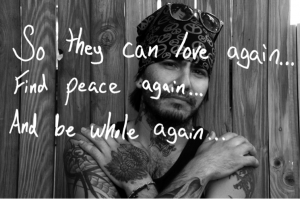

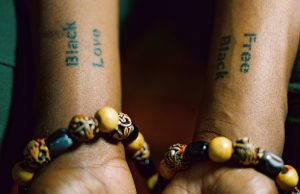
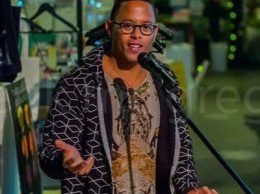
Pingback: Beyond the Beyond: closing and opening - The Feminist Wire | The Feminist Wire